Monday, March 10, 2008
How to Find and Buy Foreclosed Homes with Web 2.0 Services
With the subprime mortgage meltdown, home prices across the US have been dramatically pruned. If you were lucky enough to steer clear of the prior easy lending environment, now might be a good time to get into real estate with the S&P/Case-Shiller Home Price Composite-20 Index showing a drop of over 9% in the past year.
But how do you even begin to find foreclosed or soon-to-be foreclosed homes?
While it's definitely a good idea to look in your local newspaper for listings, you can also turn to a number of Web 2.0 sites to turn up more buying ideas.
Searching Yahoo! Real Estate
Helpfully, Yahoo! Real Estate has a search tool that lets you hone in on houses facing foreclosure. All you need to do is enter the location you are interested in, select "Foreclosures" as your listing type, and, optionally, specify price range and number of beds and baths.
According to Yahoo, the median price for foreclosures is about $126,000 compared to new homes, which are going for more than twice as much. Las Vegas home prices have fallen almost 15.34% in the past year according to the Case-Shiller Index so it makes sense as a good place to begin our search.
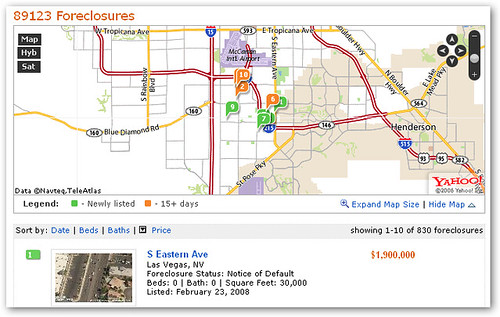
We find 830 foreclosed homes in our Yahoo search of one particular zip code in the Las Vegas area. Each listing comes complete with price and a satellite photo of the property along with square footage, foreclosure status, and listing date. For instance, a 30,000 square-foot home in Las Vegas is going for $1.9 million at the moment. The only downside is that you often have to contact the listing agent for more detail.
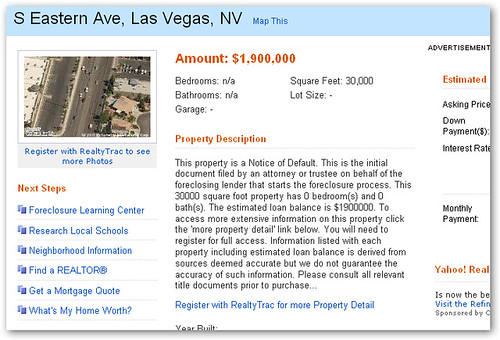
Zillow's Zestimates
You can also turn to Zillow, the data-rich real estate site that realtors hate for making an end-run around their information monopoly. Zillow claims to have "Zestimates" for the valuations of over 80 million homes and helps bring buyers and sellers together.
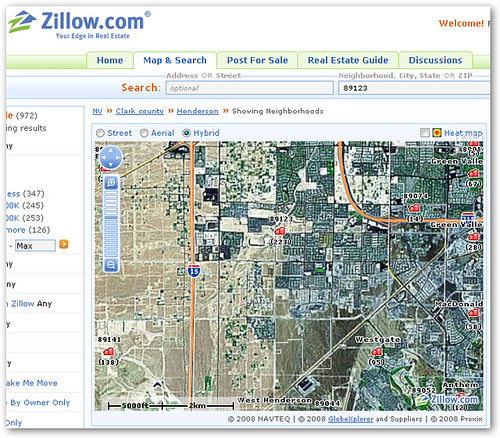
In our Las Vegas zip code, we find 971 matching results although it isn't possible to narrow it down to homes facing foreclosure. Still, Zillow provides a good alternative to the monopoly of Multiple Listing Services (MLS), which only members of the Association of Realtors can list homes on. For instance, if you were trying to sell your own home without going through a registered realtor, you wouldn't be able to list your home in one of the MLS databases making it harder for potential buyers to contact you.
Zillow also offers other unique features. If you click on a particular listing, you can dig deeper and get comparables for a home's valuation compared to its neighbors. In addition, Zillow lets you track the change in market value of a home over time under the "Zestimate & Charts" tab. This is definitely a useful tool if you want to get a sense of whether you're getting a bargain basement price.
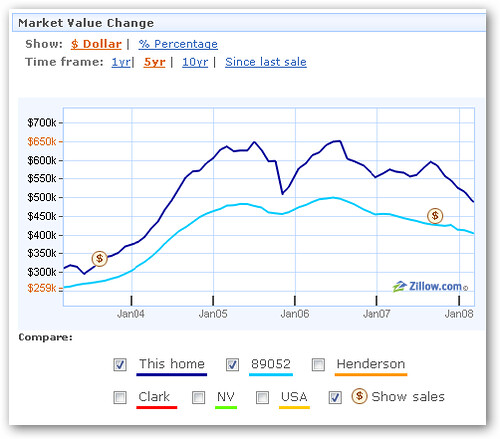
More Real Estate Data
Letting you access more than 100 million property records, the Fidelity National Financial-backed Cyberhomes offers detailed, proprietary data on home sales nationwide.
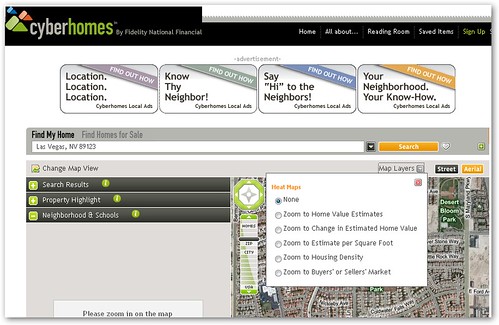
It's not enough just to find a house for sale. You also need to figure out if it's in the right neighborhood. With Cyberhomes, you can access fundamental information like average price per bedroom, unemployment rate, and rental vacancy along with other indicators to decide whether the local market is strong enough to bounce back once the subprime mess is cleaned up.
Happy Hunting
Of course, buying foreclosures is a risky business even with all the information available online, but it never hurts to gather more data points (see below for more resources).
Additional Resources
1. Realtor.com
Realtor.com, the offical site of the National Associate of Realtors, lets you search over 3 million homes in their database. You can also see recent home sales in an area as well as locate a local realtor.
2. Trulia
Real estate search engine Trulia has recently updated its listings with foreclosures, making it even more useful than before. The site also features heat maps, which let you compare sales prices across a broad area, and Trulia Voices, which let users ask and answer questions about a neighborhood.
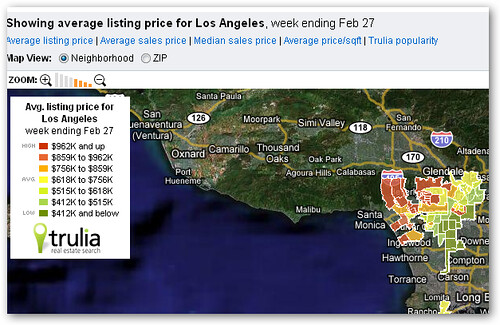
3. Redfin
Another Web 2.0 site is Redfin, which teams local real estate brokers with online real estate search. They actually employ these local agents and claim to help you save up to $10,000 in transaction fees. MLS listings are combined with historical data on a map that you can search with criteria like price, beds, and square feet.
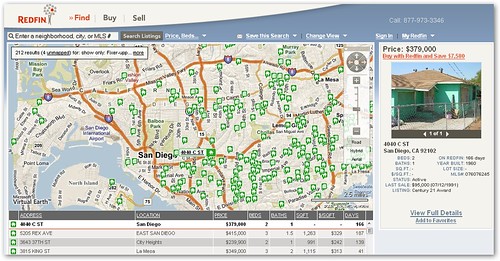
The service is currently limited to selected areas of the country, including the San Francisco Bay Area, Los Angeles, Orange County, and Seattle, but that's still plenty of territory to mine for foreclosures.
Disclaimer: This post is purely for educational purposes. What you do with it is entirely your responsibility.
Labels: Technology







